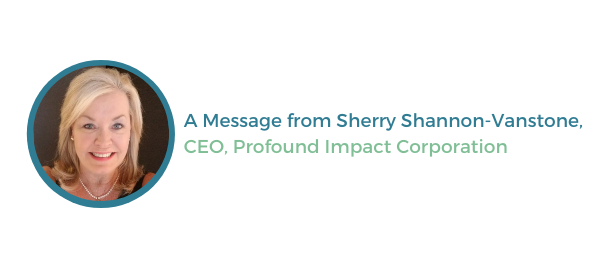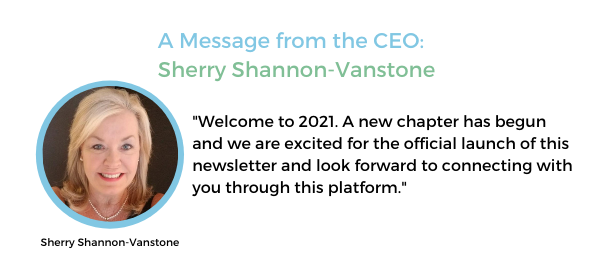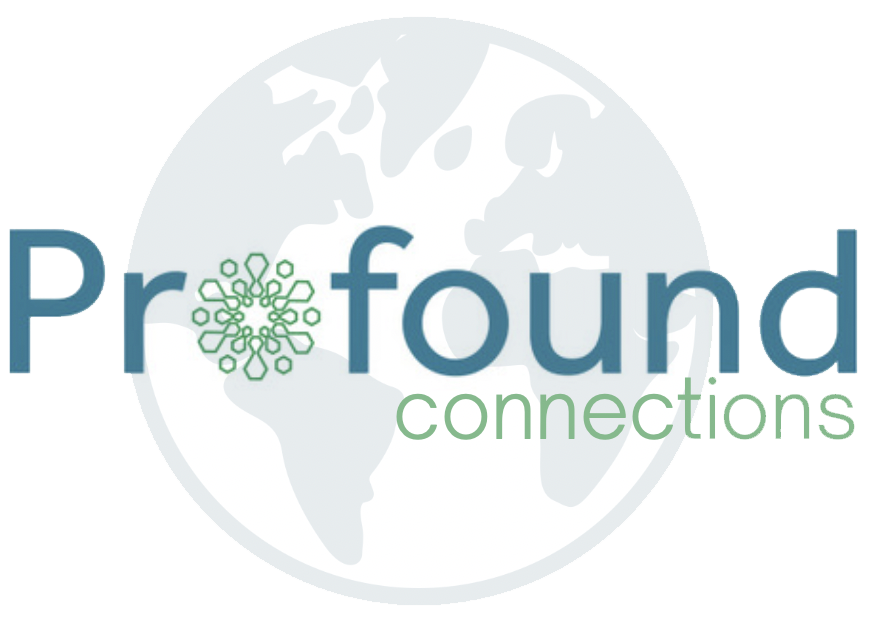Entrepreneur of the Year Award

FOR IMMEDIATE RELEASE
CEO OF LOCAL TECH STARTUP NAMED RECIPIENT OF PRESTIGIOUS ENTREPRENEUR OF THE YEAR AWARD TO BE RECOGNIZED THIS INTERNATIONAL WOMEN’S DAY
As recipient of a Women in Communications and Technology (WCT) 2020 Annual Leadership Award, Sherry Shannon-Vanstone to participate in WCT Celebrates: Sparks of Change 2021 event series
WATERLOO, ON | MARCH 2, 2021 — Profound Impact™ Corporation, a Canadian company providing a next-generation social engagement and interaction platform, is thrilled to announce its President and CEO, Sherry Shannon-Vanstone, will be recognized as the recipient of the WCT 2020 Annual Leadership Excellence Award in Entrepreneurship on March 11, 2021.
The prestigious awards program recognizes women, men and organizations committed to gender diversity in Canada’s digital industries. In an effort to recognize recipients of the 2020 Annual Leadership Excellence Awards Gala after the cancellation of the Annual Awards Gala, WCT Celebrates: Sparks of Change 2021 will be hosted throughout the month of March to applaud honourees.
For nearly 30 years, WCT has been a leader in advocating the benefits of gender equality in the workplace. WCT is Canada’s only national organization with chapters coast-to-coast dedicated to keeping a persistent focus on the under-representation of women in digital industries. The organization’s Leadership Excellence Awards are focused on celebrating the contributions and achievements of women and diversity champions that are helping to close the gender gap in the tech industry.
As the recipient of the WCT 2020 Annual Leadership Excellence — Entrepreneur award, Sherry has been recognized for the significant contributions she has made to the spectrum of digital industries while also dedicating her work towards the advancement of women in STEM.
Sherry has been involved in three successful start up ventures, including Cylink Corporation, Blackberry Certicom and TrustPoint Innovation. Most recently and in honour of her late husband, Scott A. Vanstone, Sherry founded Profound Impact Corporation in 2018. Profound Impact is a next-generation social engagement and interaction platform providing digital communities for universities and their alumni to engage, discover, and measure the impact that the institution and its stakeholders have on technology and the world. It also aims to build a sense of community for a global audience of affinity groups such as women in STEM and entrepreneurs.
“I am honoured to be recognized alongside other industry trailblazers that continue to make material differences in the roles women possess and their influence in the digital economy,” said Sherry Shannon-Vanstone. “When embarking on every new venture, it has always been my goal to help women discover and advance in innovative industries.”
WCT Celebrates: Sparks of Change is a leadership excellence event series presented by Microsoft. Seven webinars throughout the month of March will provide a chance to meet and engage with the recipients of the WCT 2020 Annual Leadership Excellence Awards.
On March 11, Sherry Shannon-Vanstone will be featured on a panel titled, “Boldly Go Where Few Women Have Gone Before,” alongside Françoise Gagnon, CEO of ADGA Group Consultants Inc., and Sonia Brar, VP of Customer Operations Strategy and Design & Delivery at Bell. The discussion, moderated by Carole Santerre, VP of Network Reliability and Service Assurance at Shaw Communications, will be centered around paving the way for women to ascend in male-dominated industries within ICT/STEM.
To register for WCT Celebrates: Sparks of Change, visit https://www.wct-fct.com/en/programs/leadership-excellence-awards.
For more information about Profound Impact™ Corporation, please visit www.profoundimpact.com.
–30–
ABOUT PROFOUND IMPACT CORPORATION
Profound Impact™ connects great people to do great things by providing a unique and transformational digital community to measure the worldwide impact of an organization and by facilitating and accelerating connectivity to inspire collaborative solutions to difficult global problems.
Website: www.profoundimpact.com
Facebook: @aprofoundimpact
Instagram: @aprofoundimpact
LinkedIn: Profound Impact Corporation
Twitter: @aprofoundimpact
For media inquiries, please contact:
Durrell Communications
International Women’s Day 2021
FOR IMMEDIATE RELEASE
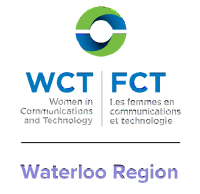
REGION OF WATERLOO CELEBRATES INTERNATIONAL WOMEN’S DAY 2021 WITH FREE ALL-DAY, VIRTUAL EVENT PROGRAM
Women in Communications and Technology — Waterloo Region Chapter to host day of online celebration of women in local community on March 8, 2021
WATERLOO, ON | MARCH 4, 2021 — In celebration of International Women’s Day on March 8, Women in Communications and Technology — Waterloo Region Chapter (WCT-WR) is partnering with community organizations to host a full day of virtual events featuring some of the Region’s most notable female names participating in live panel discussions, pre-recorded vignettes, musical interludes, interactive games and other activities.
International Women’s Day is a global day of celebrating the social, economic, cultural and political achievements of women. It also marks a call to action for accelerating gender equality. The theme for this year’s campaign is #ChooseToChallenge — highlighting women and organizations who have chosen to challenge gender bias and inequity while helping to create an inclusive world that empowers women and celebrates their achievements.
“Although our traditional ways of celebrating women in our community may look different this year, connecting with one another to collaborate and forge positive change for women has never been more important,” said Sherry Shannon-Vanstone, CEO of Profound Impact™ Corporation and Co-Chair of WCT-WR.
International Women’s Day in Waterloo Region is traditionally celebrated by community organizations and members via a range of activities that celebrate the women who have made, and continue to make, a difference in the Region. With COVID-19 restrictions limiting in-person gatherings in 2021, the the #ChooseToChallenge Waterloo Region event will be hosted through the Profound Impact digital community platform.
“We are very excited to be hosting just one of the 500+ impactful virtual events worldwide on the Profound Impact platform in 2021, to help foster the meaningful connections our platform was designed to do,” said Vanstone.
Waterloo Region’s #ChooseToChallenge day of events will run from 8:30am — 5:00pm on Monday, March 8 and include engaging conversations on the following topics:
- Women in Science
- Impact of Youth in the Community
- Impact of Mentoring
- Female Tech Founders
- Recognizing Women Making a Difference in our Community
- Choose to Challenge in Waterloo Region
Additionally, donations will be facilitated via the platform throughout the day for Kitchener Waterloo Community Foundation’s Fund for Gender Equality, which provides funding to organizations that have demonstrated a long-term commitment towards a future grounded in equity, inclusion and justice for women, girls, Two-spirit, and gender-diverse people.
Proud partners and participating organizations in this year’s event include, BMO, Durrell Communications, Kitchener Rotary, OpenText, Perimeter Institute, RBC, University of Waterloo, Vidyard and Wilfrid Laurier University.
Participant attendance is open to all and free of charge to attend at any point throughout the day. For more information on the Waterloo Region’s International Women’s Day 2021 celebration and to register, visit https://demo.profoundimpact.com/iwd2021wr.
–30–
ABOUT WOMEN IN COMMUNICATIONS AND TECHNOLOGY
Women in Communications and Technology (WCT) is a national association committed to advancing women in Canadian information, communications, media and technology. WCT inspires and engages women from coast to coast through professional development programs, networking and events, mentorship and opportunities to recognize achievements in Canada’s digital economy.
Website: www.wct-fct.com
ABOUT PROFOUND IMPACT CORPORATION
Profound Impact™ connects great people to do great things by providing a unique and transformational digital community to measure the worldwide impact of an organization and by facilitating and accelerating connectivity to inspire collaborative solutions to difficult global problems.
Website: www.profoundimpact.com
For media inquiries, please contact:
Durrell Communications
Hugh Williams
(A version of this article was originally published on https://cscan-infocan.ca in honour of Professor Williams’ CS-Can|Info-Can Lifetime Achievement Award)
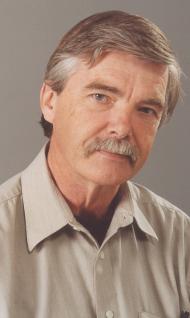
Cryptography Research Pioneer, Professor and Mentor
As Hugh Williams looks back on his career, he recognizes that there have been many people and conversations that have set and sometimes changed the direction of his career.
“There are a lot of people who influence you in different ways,” says Williams. “You don’t even think of it at the time, but they all make a difference in your life.”
Williams became fascinated with number theory as a teenager and set his sights on pursuing a math degree at nearby McMaster University. When a former math teacher, Mr. Watts, offered to take him on a tour of the University of Waterloo, he realized it was a better fit.
“I got an interview with the great Ralph Stanton. He and I had a lengthy chat. He was impressed enough that he provided me with a scholarship that would pay for my first year,” says Williams. “I liked Waterloo. I liked the newness of the place.”
In 1967, Waterloo converted their math department into a mathematics faculty and created five separate departments, one of which was called Applied Analysis and Computer Science. Don Cowan suggested that Williams pursue his PhD degree in computer science. This move set his career in motion.
“Computer science interested me because I wanted to understand how you can solve problems that arise in number theory,” says Williams. He completed his PhD under the supervision of Ron Mullin, and by doing so is an academic brother of noted researchers Scott Vanstone, Doug Stinson, Jerry Lawless and Paul Schellenberg. Williams is also the academic grandson of William Tutte, a founder of graph theory and an alumnus of Bletchley Park, Britain’s secret facility set up in World War II and staffed with young mathematicians with the purpose of breaking Nazi codes. Hugh Williams’ Academic Family Tree, developed for the Profound Impact platform, shows his full academic ancestry.
After completing his PhD, Williams accepted a faculty position at the University of Manitoba where Ralph Stanton was building a new department of Computer Science. His research continued to focus on computational number theory, but things changed again in 1976 with the publication of the Diffie-Hellman paper, New Directions in Cryptography.
“At that time, cryptography was practised as a dark art not as an academic subject,” says Williams. “But grant money was readily available. I was right there when all this stuff started to happen around me. There were things that we discovered – real surprises. Ideas that seemed so very theoretical with no practical applications turned out to have practical applications. It was always amazing.”
In 1980, during a visit to Stanford University, an opportunity to attend a lecture by Martin Hellman led Williams to write his most cited paper by far on public key cryptography.
“At the time, I didn’t think much of it at all,” says Williams. “After the class, I had a chance to talk with Ralph Merkel, one of Hellman’s students, for a few minutes. He told me about a result of Michael Rabin that came out of Harvard. I started thinking about it and prepared the paper. It was all because of a chance conversation.”
In 2001, after 31 years at the University of Manitoba, Williams was invited to join the University of Calgary’s Department of Mathematics and Statistics as the Alberta Informatics Circle of Research Excellence (iCORE) Chair in Algorithmic Number Theory and Cryptography. He was instrumental in establishing one of Canada’s leading research centres in cryptography and information security.
Although he officially retired in 2016, he continues his research and collaborates with students and other researchers. He considers the students he has taught and mentored to be the most important part of his career.
“The students were the most important thing,” he says. “I could teach them and watch their interest flourish. It was kind of like being a parent. My favourite time was when a student would come in with some computer output, plop it down on my desk, and then we would work to figure out what was going on.”
His students, his research, and his many accomplishments are all sources of pride for Williams.
“Naming a particular accomplishment is like trying to choose a favourite child,” says Williams. “They’re from different times and different parts of life. As you get older, one of the pleasures is to have the ability to look back and see the impact.”
Creating Community
Creating Community During a Pandemic
The second episode of Profound Insights, Realtime Pivot – Connecting the Dots for Multi-Faceted, Engaging Virtual Events at Scale presented a compelling case study on how the Faculty of Mathematics at the University of Waterloo employed the Profound Impact platform to significantly increase interaction between the faculty and alumni, students and partners – all in the midst of a global pandemic.
The Faculty of Mathematics had developed key goals for engaging with alumni in 2020:
• Build a sense of community and connection amongst global alumni, faculty, students, and partners;
• Regain lost alumni;
• Build a community of support and encouragement among female-identifying alumni, current/future students, faculty and researchers.
Two strategic initiatives were planned to achieve those goals:
Waterloo Math Digital Community, with a planned launch date of September 14, 2020
WWIN – the Waterloo Women’s Impact Network, with a planned launch date of May 12, 2020.
In March, 2020, COVID-19 hit the world and the Faculty of Mathematics pivoted to achieve those goals by working with Profound Impact.
In the space of two weeks, the planned Waterloo-local launch activities scheduled for the May launch of WWIN was transformed to a day-long online event hosted on the beta version of the Waterloo Math Digital Community platform. This allowed for an expanded program to include speakers and attendees from around the world and hundreds of users engaging in a real-time trial of the platform.
Instead of attracting the anticipated 100 attendees for a locally-based, in-person WWIN event, use of the Waterloo Math Digital Community allowed over 400 alumni from around the world to participate in the day’s activities, with fewer than 1% experiencing technical issues with the platform.
This inaugural use of the Waterloo Math Digital Community allowed UW Math to understand how users were engaging and interacting with the system and provided feedback by 87% of respondents that they would be likely or very likely to use the platform over time to discover relationships and network with alumni, students, and faculty members.
The successful launch of WWIN in May inspired UW Math to employ the Waterloo Math Digital Community platform in June for a celebration of the Class of 2020. Adjustments were made and additional features were added based on the previous user experience. As a result, over 600 participants were able to safely celebrate their graduation in a year when all in-person convocations were cancelled.
UW Math has continued to successfully employ the Waterloo Math Digital Community to engage with alumni, faculty and partners with events on Profound Impact Day on September 14 and Black and Gold alumni day on September 26.
The community maintains engagement with global alumni through webinars and alumni events and has grown to include over 800 participants from around the world.
The Profound Impact platform has provided the Faculty of Mathematics with a branded hub for engagement with alumni from around the world, real time access to data and visualization maps, integration with YouTube/Twitter and Zoom, the ability to develop groups within the hub to build communities of interest and unparalleled privacy and security features. Most importantly, UW Math has created a global community of alumni who continue to engage with their alma mater and each other.
Waterloo Faculty of Math Case Study
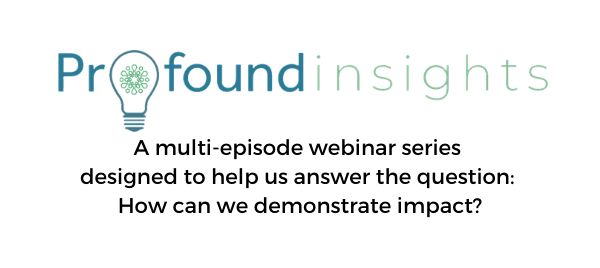
Realtime Pivot and Connecting the Dots for Multifaceted, Engaging Virtual Events at Scale: A University of Waterloo Faculty of Mathematics Case Study – February 16, 2021
The COVID-19 pandemic has required event and meeting planners to shift from planning traditional in-person events to online virtual events. We have learned that virtual events are effective in presenting information and engaging with larger, geographically dispersed audiences and provide opportunities for follow-up communication to participants.
This webinar discusses how the Faculty of Mathematics at the University of Waterloo is using the Profound Impact platform to strategically pivot from hosting in-person events to offering meaningful online experiences.
Webinar Monthly Recap

| Episode 1 — Connecting Forward: Leveraging your Institution’s Strategic Objectives to Drive Alumni Engagement Part One: November 24th, 2020 Part Two: December 15th, 2020 |
Profound Impact launched its new webinar series, Profound Insights, in November 2020 with a two-part case study on how Perimeter Institute for Theoretical Physics is working to successfully align its alumni engagement strategy with the overall institutional strategic plan using the Profound Impact platform. Perimeter Institute is a leading centre for scientific research, training, and educational outreach in foundational theoretical physics. Perimeter also trains the next generation of physicists through innovative programs and has a worldwide base of alumni and friends. Perimeter Institute is working to strategically engage those alumni and to explore Profound Impact as an effective tool to help them measure the collective impact of alumni on physics research.
The inaugural two episodes of Profound Insights featured participation by Perimeter Institute advancement, alumni and marketing staff and Profound Impact’s fundraising and alumni strategist, Barney Ellis-Perry. The Perimeter team worked with Barney through the process to draft goals and objectives with the institute’s Alumni Taskforce in order to align a new alumni and friends strategy with their overall strategic plan, to draft a strategy execution roadmap, and to map that roadmap against technology platforms.
Key to the success of Perimeter’s work was the institute’s use of Profound Impact’s Self-Assessment Tool, which enables organizations to evaluate and implement strategic drivers for constituent engagement. Identification of those drivers, combined with follow-up work with Barney Ellis-Perry, resulted in a strategy implementation road map and timeline. An integral element of that road map is use of the Profound Impact platform to engage with alumni and friends via targeted communications, connections and affinity groups, reunions, lifelong learning and events, and career support and mentoring.
Do your strategies for engaging with alumni align with your institution’s strategic plan? Do you have an implementation plan in place to effectively communicate with your alumni and provide new ways of digital engagement? You can access Profound Impact’s Self-Assessment tool at no charge and watch the two-part episode Connecting Forward: Leveraging your Institution’s Strategic Objectives to Drive Alumni Engagement.
And be sure to follow the Profound Insights webinar series for monthly episodes on topics of importance to academic, research and technology focused organizations.Webinar topics cover a wide range of subjects, all relating to practical tips and information about making connections with your stakeholders and facilitating engagement including proven methods to facilitate alumni and faculty engagement, how to share information while addressing privacy concerns, and success stories that show the impact of individuals and organizations on each other and on the world.
found Insights webinars are offered monthly on the last Tuesday of the month at 12 noon EST. Our next webinar on January 27th, 2021 will be a discussion and demonstration of how the Faculty of Mathematics at the University of Waterloo is using the Profound Impact platform to strategically pivot from hosting in-person events to offering meaningful online experiences. Please join us for Realtime Pivot and Connecting the Dots for Multifaceted, Engaging Virtual Events at Scale: A University of Waterloo Faculty of Mathematics Case Study, featuring Candace Harrington, Director of Advancement, Faculty of Mathematics, University of Waterloo.
